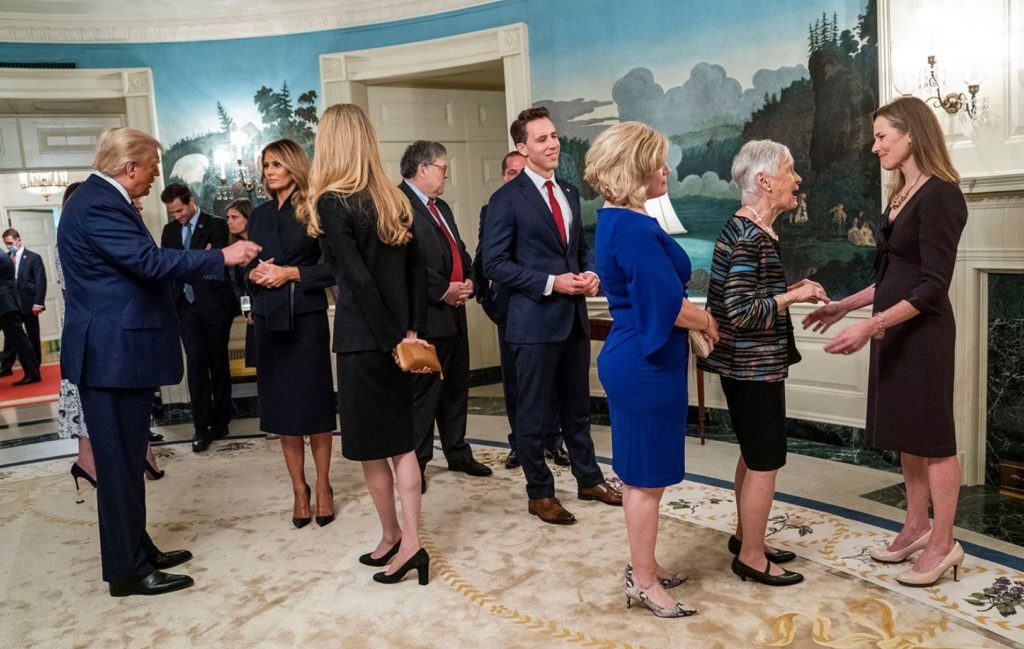The shadow docket knows (that Trump must win)

The Supreme Court has allowed for the arbitrary termination of nearly $800 million in NIH grants:
The Supreme Court on Thursday overturned by a 5-4 decision a lower court order, deciding at least temporarily that the National Institutes of Health does not need to continue paying out approximately $783 million in research grants to projects that the NIH has since stopped funding.
But the court, in its emergency-docket order, also left in place by a 5-4 order a lower court ruling that threw out NIH memos that enforced the administration’s policies.
Justice Amy Coney Barrett sided with the court’s conservatives save Chief Justice John Roberts, who sided with the court’s three liberals.
In February, the NIH, which describes itself as the “largest public funder of biomedical research in the world,” began terminating federal grants en masse for projects that did not “align with” the Trump administration’s policies.
In what the American Civil Liberties Union has referred to as “an ideological purge,” Robert F. Kennedy Jr., the secretary of health and human services, instructed a reevaluation of all grants funding or supporting “DEI and gender identity research activities and programs.” Funding was also withdrawn from projects studying “vaccine hesitancy” and the impact of the COVID-19 pandemic, projects that the NIH asserts have “outlasted” their “limited purpose.”
The NIH leaders argue that “awards can be terminated if they do not support agency objectives or policies,” as noted in the NIH’s Notice of Award stipulations. They compared this case to an April Supreme Court emergency-docket decision where the justices allowed the administration to freeze $65 million worth of Department of Education DEI-related grants while the case proceeded in the lower courts.
And while the suit against the memo (as opposed to the grant terminations themselves) was allowed to continue, this is a concession of little value to the people who had their grants terminated. As Jackson explains on p.8 of her dissent, a federal statute forbids the Court of Federal Claims from assuming jurisdiction when the same case is already before another Court, so for all intents and purposes this insulates these terminations from legal challenge.
A couple other points from KBJ’s dissent are worth highlighting. The first is that this is another case of shadow docket orders being treated as having precedential value comparable to holdings in the merrits:
Just a classic Roberts Court circle-jerk — one hastily issued ipse dixit with theoretically no merits determination suddenly resolves all kinds of cases going forward
[image or embed]— Scott Lemieux (@lemieuxlgm.bsky.social) Aug 21, 2025 at 2:14 PM
Jackson also observes that calling the Roberts Court’s shadow docket holdings “Calvinball” is too kind:
Republican jurisprudence comprehensively described in one graf
[image or embed]— Scott Lemieux (@lemieuxlgm.bsky.social) Aug 21, 2025 at 6:02 PM
Finally, in explaining why it’s absurd to find that the balance of equities favors the government, Jackson describes the the extremely negative impact that the latest Roberts Court use of an unreasoned order to displace a carefully reasoned District Court order will have:


Alas, the Republican Party is RFK Jr.’s all the way up and down now — the Roberts Court’s Republicans presumably see this as all the more reason to have intervened.
